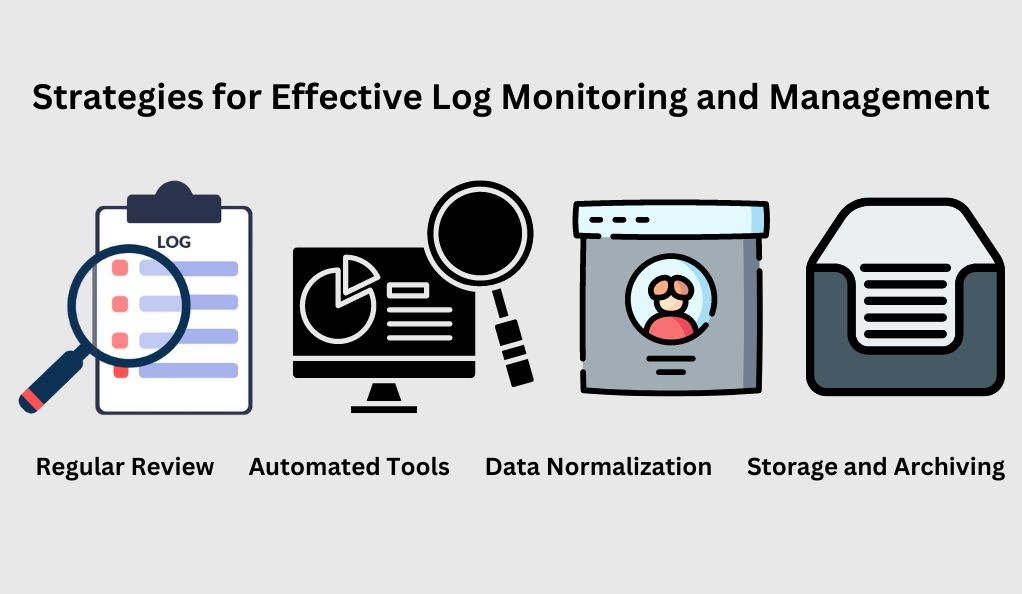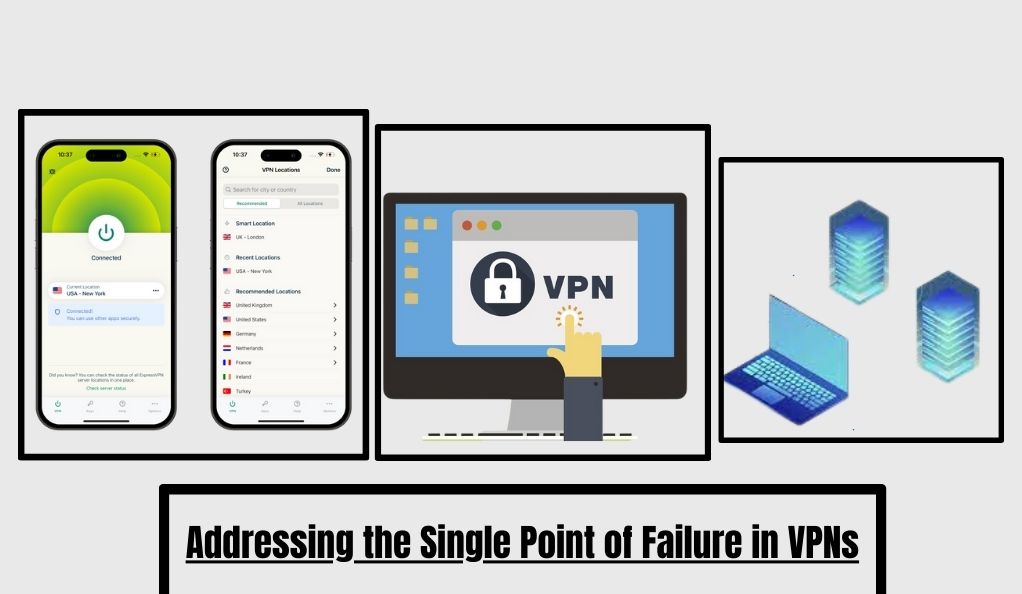Enhancing Remote Work Security with VPNs and Log Management
In the era of remote work, cybersecurity is paramount. This introduction explores how VPNs and log management are vital for securing remote work environments, safeguarding data, and ensuring efficient operations.
The Rise of Remote Work and Cybersecurity Challenges
In recent years, the way we work has shifted dramatically. More and more people are working from home or other remote locations. This change brings many benefits, but it also introduces new challenges, especially in the area of cybersecurity. When working outside the traditional office, the security of company data and networks becomes a critical concern. Cyber threats like hacking and data breaches have become more common, making it crucial for businesses to find ways to protect their digital assets and ensure the safety of their employees’ online activities.
Overview of VPNs and Their Relevance in Remote Work Environments
One of the key solutions to these cybersecurity challenges is the use of Virtual Private Networks, or VPNs. A VPN is a technology that creates a safe and encrypted connection over a less secure network, such as the internet. It’s like a secure tunnel for your internet activity, keeping your online actions private and protecting your data from potential threats. In a remote work setting, VPNs are particularly important. They allow employees to connect to their company’s network securely, no matter where they are. By using a VPN, remote workers can access company resources safely, just as if they were sitting in the office. This technology not only secures data but also ensures that only authorized people can access sensitive company information, making it an essential tool in the modern remote working world.
Understanding VPN Security
The concept of VPN security is a crucial aspect of protecting data and ensuring safe internet use, especially in remote work environments. VPN security involves several key features that work together to safeguard information as it travels across the internet.
Encryption: The Backbone of VPN Security
- What is Encryption?
Encryption is like turning your data into a secret code. Only those who have the key can read it. When you use a VPN, it encrypts your data, making it unreadable to anyone who might intercept it. This process is vital for keeping sensitive information secure, especially when using public Wi-Fi networks. - How Does Encryption Work in a VPN?
When you connect to a VPN, it creates an encrypted tunnel for your data. This tunnel goes from your device to the VPN server. As your data travels through this tunnel, it remains scrambled and secure. Even if someone manages to access this data, all they see is meaningless jumble, not your actual information.
Use of VPNs for Access Control and Data Protection
- Access Control with VPNs
VPNs play a significant role in controlling who can access certain data or networks. By requiring users to connect through a VPN, businesses ensure that only authorized individuals can access their internal networks. This way, they prevent unauthorized access and potential data breaches. - Protecting Data with VPNs
VPNs are not just for hiding your internet activity; they are also essential for protecting data as it travels. For example, when you send an email or access a file on your company’s server, the VPN ensures that this data is secure and invisible to outsiders.
Challenges and Solutions in VPN Monitoring
VPN monitoring is crucial for maintaining the security and efficiency of a VPN network, especially in remote work scenarios. However, monitoring comes with its own set of challenges, which need effective solutions to ensure the VPN remains a reliable tool for secure and efficient remote work.
The Operational Challenges in Managing VPNs
Monitoring a VPN can be tricky. Here are some of the common challenges:
- Tracking User Activity: With many remote workers, it can be hard to keep an eye on everyone’s VPN use.
- Dealing with Security Threats: Cyber threats are always evolving, making it tough to keep the VPN safe.
- Managing Performance: Too many users on a VPN can slow things down, affecting work.
Solutions to these challenges often involve using specialized VPN monitoring tools. These tools can track who is using the VPN and for how long, spot potential security risks, and help manage the load on the VPN to keep it running smoothly.
Best Practices for Secure VPN Management
To overcome these challenges, here are some best practices:
- Stronger Passwords: Encourage employees to use complex passwords for better security.
- Multi-Factor Authentication: Add an extra layer of security by requiring a second form of verification.
- Regular Monitoring: Keep an eye on VPN logs to quickly spot and respond to unusual activities.
- Update and Maintain: Regularly update the VPN software to protect against new threats.
VPN and Firewall Log Management
Managing the logs of VPNs and firewalls is a key part of ensuring network security, especially for remote work. These logs are records of events and transactions that provide insights into how the network is being used and can alert you to potential security issues.
Importance of Log Management for VPNs and Firewalls
Logs from VPNs and firewalls are like detailed diaries of network activity. They contain valuable information about:
- User Connections: Who is connecting to your network and when.
- Traffic Patterns: The flow of data in and out of your network.
- Security Alerts: Any unusual or potentially harmful activity.
Proper management of these logs helps in identifying security threats early and resolving performance issues, ensuring a secure and efficient network for remote workers.
Strategies for Effective Log Monitoring and Management

To get the most out of log data, consider these strategies:
- Regular Review: Regularly check log reports for unusual activity or patterns.
- Automated Tools: Use automated tools for real-time monitoring and alerts.
- Data Normalization: Convert log data into a consistent format for easier analysis.
- Storage and Archiving: Keep logs stored securely for a certain period for compliance and analysis purposes.
Advanced Strategies for VPN Security and Management
As businesses grow and technology evolves, advanced strategies are needed to ensure the security and efficiency of VPNs. These strategies go beyond basic setups and involve more sophisticated methods of managing and securing VPN access.
Exploring Alternatives to Traditional VPNs
Traditional VPNs are great, but they have limitations. Here’s where exploring alternatives can help:
- Cloud-Based VPNs: These offer more flexibility and scalability compared to traditional VPNs.
- Software-Defined Perimeters (SDP): SDPs create a ‘hidden’ network, visible only to authorized users.
- Zero Trust Networks: This approach assumes no one is trusted by default, even those inside the network.
These alternatives often provide better security and are easier to manage, especially for companies with a large number of remote workers or those needing more control over their network access.
Implementing Zero Trust Security Frameworks
The Zero Trust model is gaining traction in VPN security, guided by the ‘never trust, always verify’ principle. Its implementation involves strict access controls, permitting resource access solely based on user identity and context. Continuous monitoring and authentication of users, even post-access, ensures heightened security. Furthermore, adhering to the least-privilege access principle grants users only the minimum necessary permissions for their tasks, bolstering overall cybersecurity.
Addressing the Single Point of Failure in VPNs
VPNs can be a single point of failure. To address this:
- Redundant VPN Setup: Have more than one VPN server in different locations.
- Regular Security Audits: Regularly check for vulnerabilities in your VPN setup.
- Backup and Recovery Plans: Have plans in place in case of a VPN failure.

Granular Access Control for Individual User Needs
Effective management of user access involves granular control mechanisms. Role-Based Access Control (RBAC) allocates permissions according to a user’s organizational role. Additionally, user-specific permissions tailor access to the unique requirements of individual users, ensuring a more refined and secure approach to resource access.
Case Studies and Real-World Applications
In this section, we look at real-world examples where VPNs have made a significant impact. These case studies highlight the practical applications and benefits of VPNs in various business scenarios.
Analyzing Real-World Scenarios of VPN and Log Management
Real-world scenarios give us valuable insights into how VPNs and log management work in action. Here are a few examples:
- A Healthcare Provider Implements a VPN: A healthcare company uses a VPN to allow doctors and staff to securely access patient records remotely, ensuring patient confidentiality and regulatory compliance.
- Retail Business Enhances Security with VPNs: A retail chain deploys VPNs for secure communication between stores and the central office, protecting sensitive financial and customer data.
- An IT Company Adopts Zero Trust: An IT services firm implements a Zero Trust framework, enhancing their VPN security and minimizing internal threats.
These scenarios show how VPNs can be tailored to meet the specific security needs of different industries and business models.
Success Stories of Organizations Optimizing Remote Work Security
Let’s look at some success stories:
- Tech Startup Enhances Efficiency with Cloud-Based VPN: A tech startup switches to a cloud-based VPN solution, resulting in improved scalability and remote work efficiency.
- Large Corporation Tackles VPN Management Challenges: A multinational corporation addresses its VPN performance issues by adopting advanced VPN monitoring tools, resulting in smoother remote operations.
- Educational Institution Implements Granular Access Control: A university introduces granular access control in its VPN setup, ensuring that students and faculty have appropriate access levels to resources.
Conclusion
The role of VPNs in securing remote work cannot be overstated. From protecting data with robust encryption to offering advanced security through strategies like Zero Trust, VPNs are a cornerstone of modern cybersecurity. Their ability to manage access control and ensure secure, private connections makes them an essential tool for businesses of all sizes.
The real-world case studies we discussed show how VPNs can be effectively used in various industries, demonstrating their versatility and importance. Whether it’s a healthcare provider protecting patient records or a retail business safeguarding financial data, VPNs provide the necessary security infrastructure for safe and efficient remote work.
As the work landscape continues to evolve, VPNs will remain a critical element in ensuring that businesses can operate securely and efficiently, no matter where their employees are located. The insights and strategies discussed in this article provide a roadmap for businesses looking to enhance their remote work security and management practices.


Leave a Reply